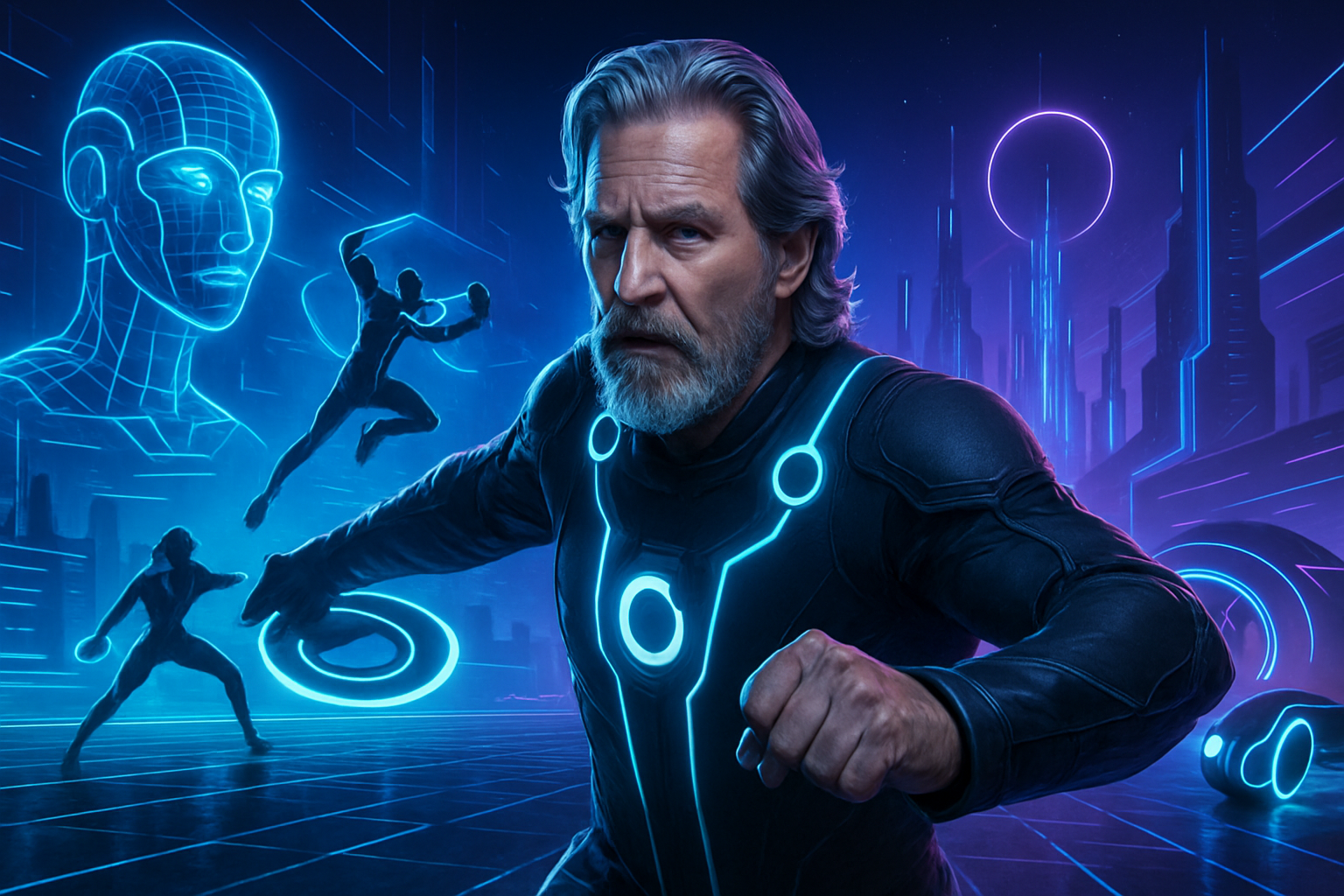The return of Tron: Ares, driven by the charisma of Jeff Bridges, raises a multitude of fascinating questions. How does this new cinematic experience reinvent the concepts of digital reality and identity? The tumultuous interaction between the virtual world and our reality now borders on moral and philosophical issues.
Ares, a program at the heart of the narrative.
This film does not just evoke nostalgia for the Tron universe; it explores modern themes that question our relationship with technology. The shadow of Flynn, a symbol of innovation, becomes an influential specter in the story. Through this analysis, a truth emerges:
The convergence of worlds has consequences.
Return to the Tron Universe
The film Tron: Ares brings us back into the complex and fascinating universe of this iconic Disney franchise. Set fifteen years after Tron: Legacy, this new adventure builds on a rapidly evolving technological context, where companies struggle to master 3D printing of digital creations.
Intrigue and Conflict
Ares, portrayed by Jared Leto, is a master control program that wants to escape its status as an army of replaceable soldiers under the command of Julian Dillinger. The plot develops around a battle between ENCOM and Dillinger Systems to obtain the Permanence code, which would allow digital creations to last indefinitely in the real world.
The search for this code begins when the CEO of ENCOM, Eve Kim, discovers the file containing this crucial information belonging to the original creator, Kevin Flynn.
The Role of Kevin Flynn
Kevin Flynn, played by Jeff Bridges, adds a nostalgic dimension to the story. Although his character appears to act as a digital ghost, the lack of clear explanations for his resurrection intrigues. This choice to represent him as a holographic spirit evokes themes of memory and passing the torch, far from mere narrative continuity.
A Link to the Past
Ares, in search of identity, encounters Flynn who, although physically absent, represents the very foundations of the Tron universe. This symptomatic moment highlights the film’s temptation to exploit nostalgia without true character development. Superficial dialogues reveal a more exhibition-oriented approach rather than narrative depth.
Technology and Digital Realities
The film addresses current issues related to technology and the growing impact of artificial intelligence on society. Reflections on AI, through the arc of Ares, raise questions about the morality behind digitization and the permanence of human consciousness.
The race for technological innovation led by companies reflects the contemporary challenges faced by industry players. The reality of this inter-company conflict underscores the challenges described in exciting articles on the integration of artificial intelligence.
Reactions and Perspectives
As Tron: Ares strives to revive the myth of Tron, critics emerge regarding its ability to capture the essence of the original work. The character of Jared Leto, while having potential, struggles to transcend sometimes flat dialogues and unclear motivations. Viewers question how this new installment can fit into the continuity of a franchise already rich in meanings.
With familiar elements such as the light cycles and the iconic soundtrack by Wendy Carlos, Ares attempts to honor its legacy while modernizing a narrative that deserves to be deepened.
In an era of rapid technological advances and deep discussions about AI, it is fascinating to observe how this film addresses the convergence of the digital and real worlds. The potential to explore these themes further is felt, as well as the need for emotion and reflection in the characters’ journey.
Frequently Asked Questions
What is the main concept of “Tron: Ares”?
“Tron: Ares” explores the convergence between the digital world and the real world, highlighting the implications of advanced technology and artificial intelligence on our societies.
How does Jeff Bridges appear in “Tron: Ares”?
In the film, Jeff Bridges portrays a holographic version of his character, Kevin Flynn, who acts as a guide for the main character, Ares.
Is “Tron: Ares” a direct sequel to “Tron: Legacy”?
Yes, “Tron: Ares” takes place 15 years after the events of “Tron: Legacy” and continues the exploration of the Tron universe.
What is Ares’s role in the film?
Ares, portrayed by Jared Leto, is a control program seeking to emancipate itself from the authority of its creator, leading to conflicts with competing tech companies.
What does the Permanence code mean in “Tron: Ares”?
The Permanence code is a crucial element that allows digital programs to exist indefinitely, unlike the 29-minute limit imposed by current technology.
How does the film address the theme of nostalgia?
“Tron: Ares” includes many iconic elements from previous films, creating a strong emotional connection with fans of the franchise while introducing new characters and contemporary themes.
What is the central message of “Tron: Ares”?
The film raises questions about technology, free will, and the consequences of the convergence between the real world and the virtual world, prompting viewers to reflect on the digital future.
Is there a connection between “Tron: Ares” and other sci-fi franchises?
Yes, “Tron: Ares” echoes themes present in other science fiction works, such as the exploration of artificial intelligence and the struggle for machine autonomy.






